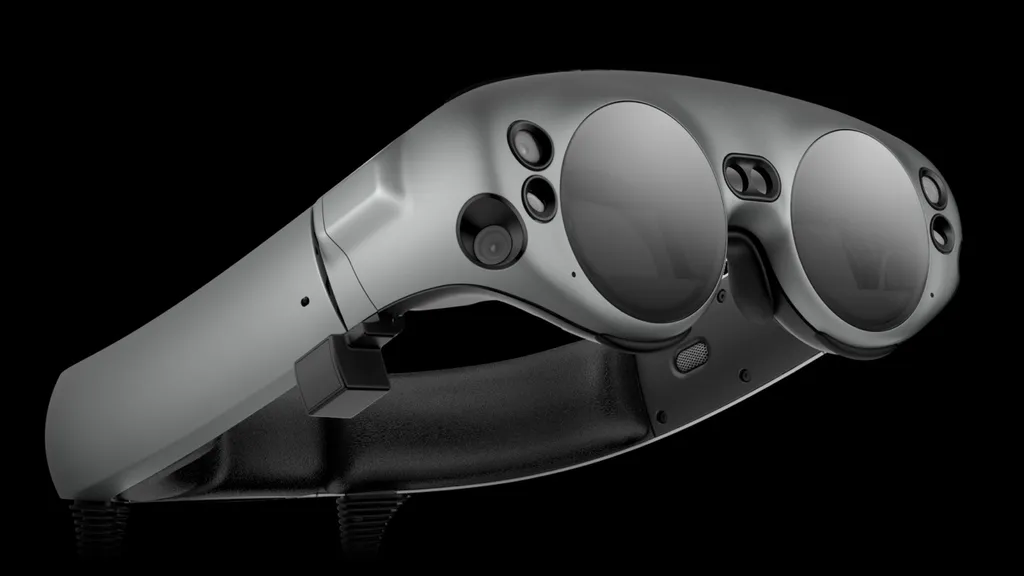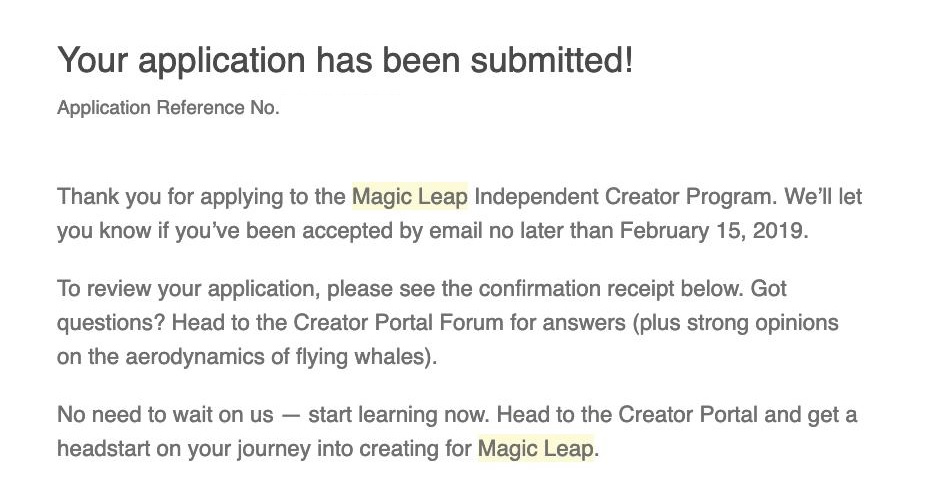AR headset-maker Magic Leap saw 6,500 developers apply to its recent Independent Creator Program. It’s a figure that “exceeded” the company’s expectations. But, a few days on from the application cutoff point, not everyone’s satisfied.
Announced late last year, the Independent Creator Program promised funding and resources for smaller developers building Magic Leap apps. Studios with less than 20 members could apply for grants between $20,000 – $500,000. At the time, Magic Leap said it would screen applications and decide how much money to provide winners. Successful applicants were also promised free Magic Leap One kits and marketing support among other benefits.
According to the timeline shown on Magic Leap’s site, entrants were to be “offered grants on a rolling basis through February 15, 2019.” In an email sent by Magic Leap to applicants, the company said it would let them know if they had been selected “no later than February 15th, 2019.”
However, three days on from that date some developers still don’t know if they have been selected or not. Magic Leap’s official Twitter account yesterday told people to “Stay tuned for more info on who and what was selected.”
After months of reviewing the most innovative and imaginative ideas #mixedreality has ever seen, we’ve selected the recipients for this year’s #IndependentCreatorProgram. Stay tuned for more info on who and what was selected. pic.twitter.com/IgAZ8Nul80
— Magic Leap (@magicleap) February 17, 2019
Speaking to UploadVR, Chief Content Officer, Rio Caraeff, said that every initial winner had been contacted before February 15th. He said that the company has “been going back and forth, basically with the selected winners, to finalize the paperwork as you do when you have a program of this size which is $10 million.” At the same time, Caraeff said a “small quantity” of developers also turned the grant down due to other commitments.
“And then basically our communication plan was really to start notifying everybody, basically all of the applicants, of the status of the program this coming week because we just started locking in the winners and notifying them Wednesday, Thursday, Friday of last week.”
Developers are free to announce they’ve won, but at the time of writing, we haven’t seen any studios do so.
But what about those that didn’t win? By not immediately notifying other developers as to if they had been successful, the company has left some applicants in suspense. One AR developer told me they had spent around $3,000 on assembling their submission for the grant and had even put off investor meetings in hopes of hearing by now. One developer on Twitter said the situation had them considering dropping Magic Leap support. Over on the official forums, another said they may have to turn down the grant if they aren’t notified by the end of the month.
Caraeff assured me that unsuccessful developers would be notified tomorrow. “I would agree with you that we could improve the process and the wording going forward, and that’s our intention,” he said when asked if he could understand developer’s frustrations. “As you likely know this is the first time that we’ve done this and we’ve tried to be as open and transparent as possible. So I would agree you could draw a conclusion of that. But it doesn’t say everybody will be notified of their definitive status by the 15th, it just says that winners will be notified and that’s what we’ve done.”
Caraeff was also keen to stress that the company had to deal with more applications than it had anticipated. “I think the number exceeded expectations,” he added. “We spent a long time reviewing all of the applications, we put a cross-company panel together and spent a tremendous amount of rigor and time. Because a lot of the applications are very detailed, a lot of work goes into them. And we want to make sure we respect that.” Over on Twitter Caraeff added that the company wouldn’t share how many programs won.
There will be chances to improve, however. Caraeff said the company plans on doing “additional waves” and that the program could be “evergreen”.
“The timing of the second program, I think, depends upon how quickly I can get results showing from this program,” he explained. “But I would say mid-year is probably a good estimate. May/June timeframe is when we would launch a second wave.”
As for feedback for unsuccessful applicants, Caraeff noted that the company was still trying to figure that out. “I think that when you’re communicating en masse with many thousands of people you’re not going to be able to provide specific feedback for every single person that’s bespoke for their proposal. So I think we have to figure out the best way to provide feedback,” he added.



























